WM is a Sustainability Leader
WM is leading the environmental services industry with new innovations today to ensure we are sustainable for tomorrow. Our modern landfills are saving endangered species, protecting sensitive land and continually working to reduce impacts on the climate. From natural gas-powered collection trucks to covered aerated static pile (CASP) composting facilities, we are constantly working to reduce our carbon footprint and the carbon footprint of the communities we serve.
Wildlife Habitats and Nature Preserves
The Wildlife Habitat Council has certified four of our landfills as wildlife habitat at work facilities, a designation that recognizes meaningful wildlife habitat management and conservation.
Our landfills have worked to create nature preserves that have saved a threatened butterfly species, provided salmon a safe spawning area and provided a save haven for endless amounts of wildlife, including bald eagles!
Our modern landfills are saving endangered species, protecting sensitive land and continually working to reduce impacts on the climate. Our landfills are sophisticated, engineered structures that help us secure environmental safety and sustainability.
Renewable Energy
Landfill Gas to Energy Power Plants
Our landfills are making sure the trash you threw out yesterday will work for you tomorrow. We have invested millions of dollars to build landfill gas to energy power plants at many of our landfills. These power plants use methane gas collected from inside a landfill to power generators that create electricity.
Yesterday’s Trash Propels Today’s Fleet
Almost every collection truck in our Northern California – Nevada area is powered by natural gas, a cleaner burning fuel source than traditional diesel. For every diesel-powered truck we replace with natural gas, we reduce our annual fuel use by an average of 8,000 gallons, an equivalent of 14 metric tons of greenhouse gas. Compressed natural gas vehicles are quieter than diesel trucks and emit nearly zero particulate emissions, which helps improve air quality.
Altamont Landfill in Alameda County has one of the largest renewable landfill gas to liquefied natural gas facilities in the county. It turns methane captured in the landfill into renewable natural gas to power our vehicles.
Solar Power
WM continues to invest in sustainable solutions, including powering our facilities with the sun. We’ve installed solar panels at hauling districts and recycling facilities to help add power to the electrical grid and make our buildings sustainable.
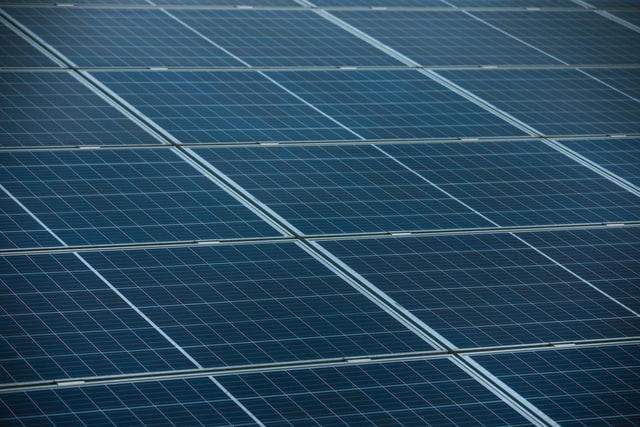
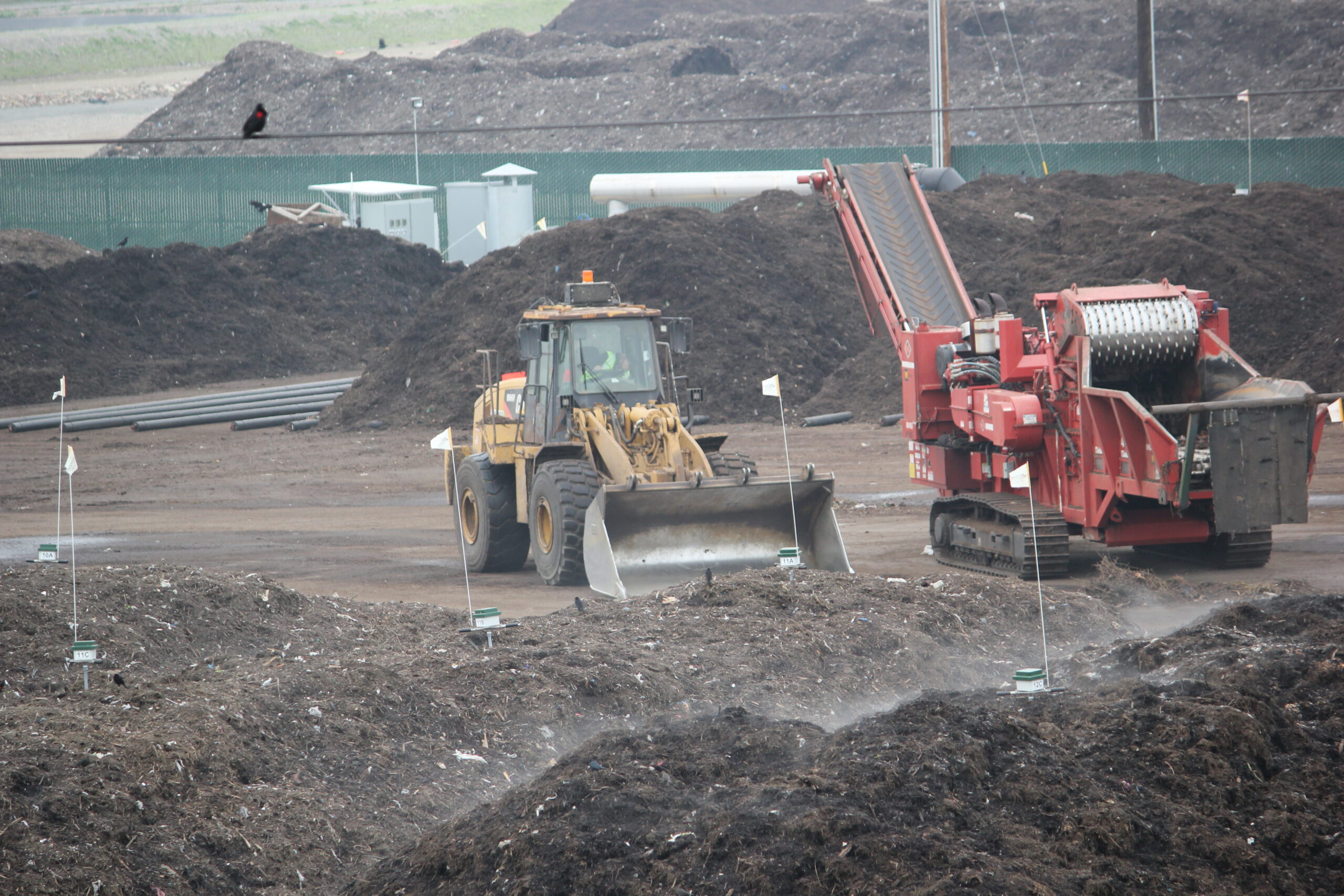
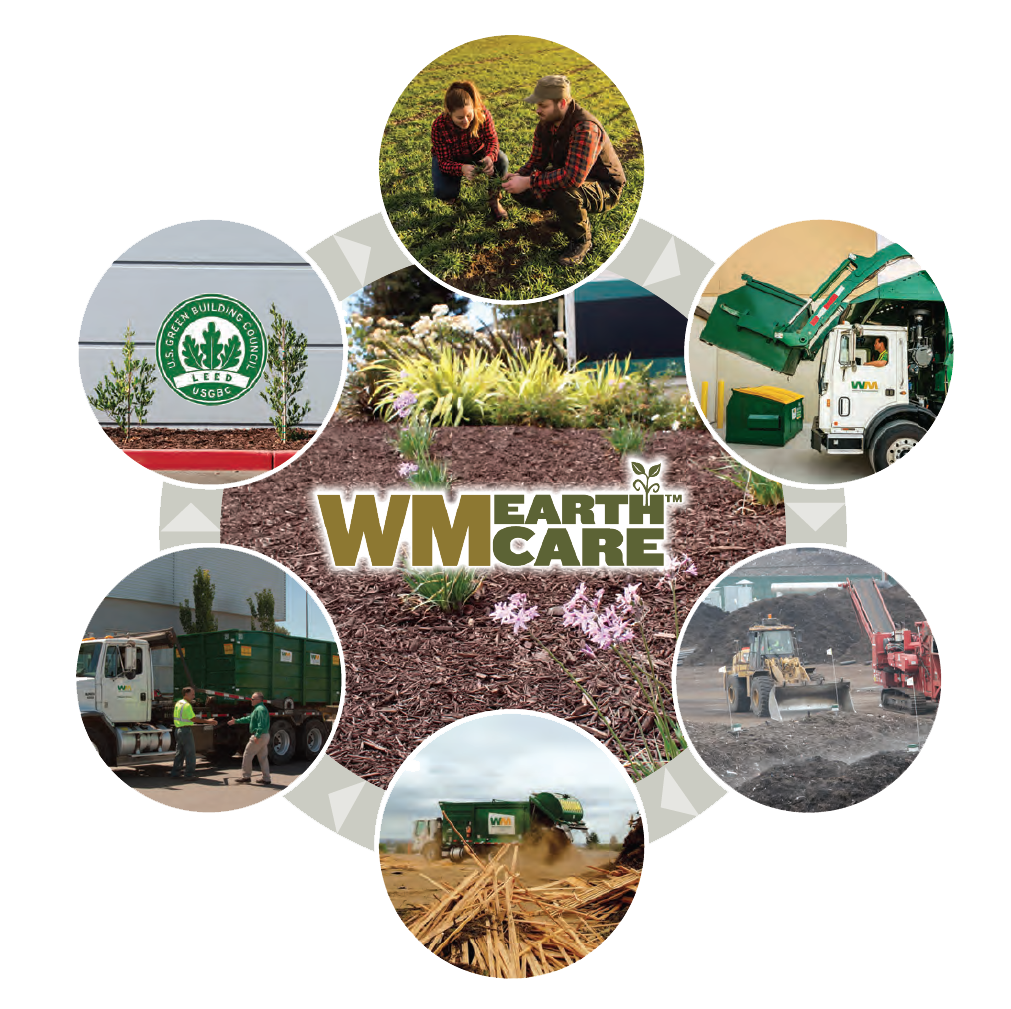
Closing the Loop – Turning Food Scraps and Yard Debris into Compost
WM NCN operates three covered aerated static pile composting facilities, two of which are located at our landfills. These composting facilities produce OMRI certified compost that can be used in farming, ranching and landscaping. Our compost is created by WM Earthcare, a subsidiary to WM NCN.
WM EarthCare™ Compost and Mulch
With WM EarthCare™’s Sustainability Loop of Recovery, Recycling, and Repurposing You Can:
- Contribute to a healthier environment with the diversion of green waste from landfills.
- Reduce pollution run-off by replacing commercial fertilizers and herbicides.
- Decrease water usage through moisture retention.
- Earn LEED™ certification points and fulfill California’s Short-Lived Climate Pollutant Reduction Strategy (SB1383) requirements.
- Contribute to a green-job workforce through advanced green waste recovery solutions.
Visit our WM Earthcare™ website to view our customer success stories and learn more about our award winning, OMRI certified compost and mulch products. Contact us at earthcare@wm.com for sales, including bulk pricing.
Reducing Waste
WM Smart Truck℠
Our collection trucks in Northern California – Nevada are equipped with cameras that can pinpoint issues and help jurisdictions meet diversion goals by ensuring that customers recycling right.
Recycling Facilities
WM utiltizes the most advanaced sorting equipment in our material recovery facilities eo ensure we can capture all the materials that can be repurposed. WM is committed to recycling and working to make sure the recyclable material we recover from your container is reused to make new products.
Learn More About WM Recycling Technology
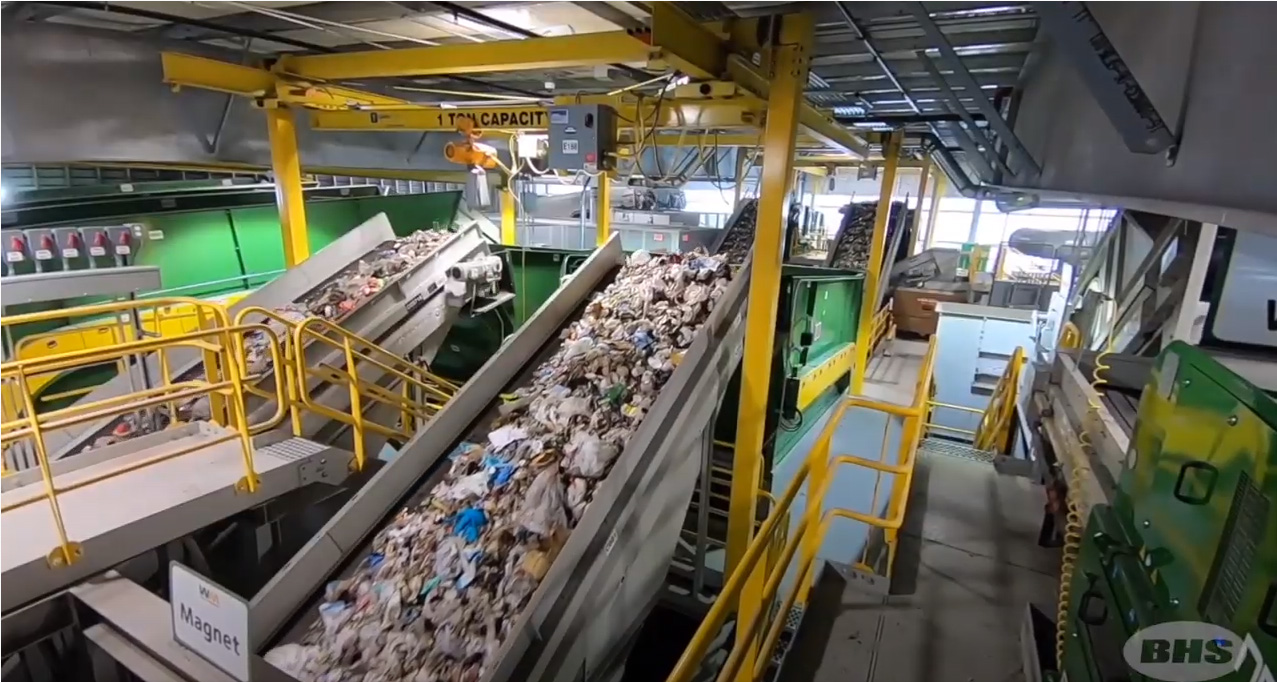
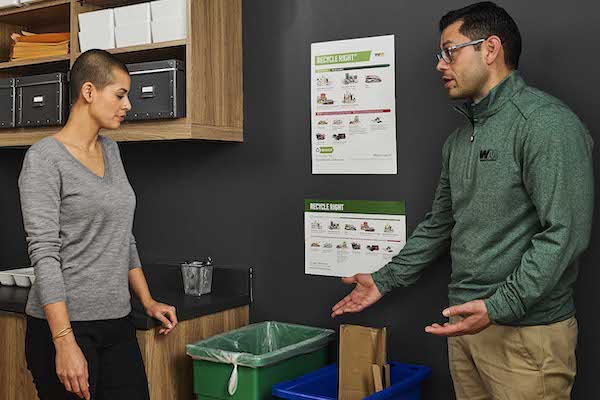
SB 1383: California’s Short-Lived Climate Pollutant Reduction Strategy
California SB 1383 is intended to decrease greenhouse gas emissions and slow the effects of climate change by reducing the amount of organic materials headed to landfills. WM is committed to working with our local governments to ensure everyone has access to services and education to comply.
SB 1383 is the most significant landfill waste reduction mandate adopted in California in the last 30 years. Its goal is to reduce organics waste landfill disposal by 75% (from 2014 levels) by 2025. This means diverting more than 20 million tons from landfills. The legislation aims to slow climate change by diverting organic materials from landfills, recovering 20% of edible food and redirecting it to food-insecure Californians.
Beginning January 1, 2022, residences and businesses are required to sort and separately collect food scraps, yard debris and food-soiled paper from trash and recycling and subscribe to an organics waste collection service. Check with your local hauler for city exceptions.
To learn more, visit the California Department of Resources Recycling and Recovery (CalRecycle) website.
For more information or questions on how WM can assist in your SB1383 program, email us at sb1383@wm.com
